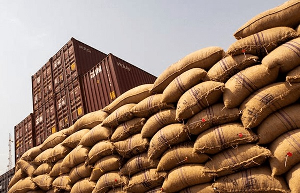The Ghana Rice Inter-Professional Body (GRIB) has concluded its national stakeholders’ advocacy workshop on rice standards, certification and promotion of Ghana rice brands.
The highly attended programme sought to deliberate on and review strategies that would lead to the growing and production of more rice all year round, ensure quality while encouraging the consumption of local rice.
The workshop was under the theme, “Using national rice standards and certification to promote and market Ghana rice brands.” The main purpose of the programme, according to Imoro Amoro, President of GRIB, was to sensitize producers on the rice value chain, the tremendous improvement in the industry over the years and how they could develop rice standards to improve quality and certify their brands.
He said it is prudent for members to acknowledge that the rice industry holds immense prospects in the areas of wealth and sustainable job creation for the citizenry.
“There is the need for stakeholders to take advantage of the huge potentials available in the rice value chain, intensify production through transplanting and use good quality seeds,” Mr Amoro underscored.
He noted that those measures would help increase the incomes of rice famers as well.
In the area of production, the GRIB president averred that ensuring good processing methods such as cleaning and destoning, must be adhered to by members for good quality rice to be produced and well packaged to meet the standards and competition of imported rice.
“GRIB’s main agenda for 2017 is to set up at least six Ghana Rice Business Centres in highly concentrated rice producing areas in Ghana, in addition to those of Asutsuare and Navrongo.
Mr Amoro said this intervention seeks to address the problem of low productivity along the rice value chain emanating from the challenge of low access to inputs and its distribution, access to credit, market, technology and equipment, among others.
In his contribution, the National Rice Desk Officer of the Ministry of Food and Agriculture, Al-Hassan Imoro, said the ministry, with support from the government, is subsidizing for crop and fertilizers to support farmers in selected crops, including rice.
He said the aim is to ensure that “we grow more to feed the country.”
Mr Imoro claimed, “This workshop has come at the right time since rice farmers are about harvesting their crops.”
He disclosed that the ministry had come out with a national rice development strategy, taking into consideration the rice chain.
He indicated that the ministry was also holding workshops to support rice producers.
Business News of Wednesday, 12 July 2017
Source: dailyguideafrica.com













